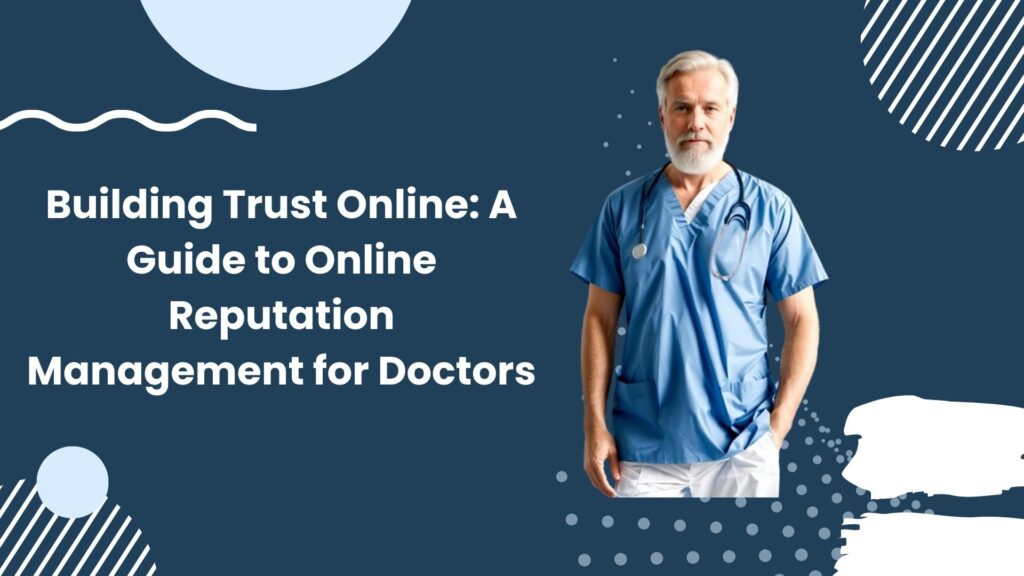In today’s digital age, patients increasingly rely on online reviews and search results to find healthcare providers. A strong online reputation is essential for attracting new patients and building trust within the community. This guide explores the importance of online reputation management (ORM) for doctors and offers practical tips for building a positive digital presence.
Why Online Reputation Matters in Healthcare

- Patient Experience Drives Online Reviews: Patients often share their experiences online, both positive and negative. Satisfied patients can significantly boost your reputation, while negative reviews can deter potential patients.
- First Impressions Online: The first 10 Google search results for a doctor’s name can significantly influence patient choice. A positive online presence creates a favorable first impression.
- Proactive Approach is Key: Don’t wait for negative reviews to appear. By actively managing your online reputation, you can shape the narrative and showcase your practice’s strengths.
Benefits of Online Reputation Management for Doctors

- Enhanced Patient Acquisition: Potential patients seeking a doctor will often search online. Positive reviews and a strong online presence attract new patients by demonstrating your expertise and patient satisfaction.
- Improved Patient Communication: Online platforms enable communication with patients outside the clinical setting. Responding to reviews (positive and negative) demonstrates your commitment to patient feedback and fosters open communication.
- Valuable Patient Feedback: Online reviews offer valuable insights into patient experiences. By analyzing reviews, you can identify areas for improvement and enhance patient satisfaction.
- Building Trust and Credibility: A consistent and positive online presence establishes trust and credibility with potential patients.
Strategies for Building a Strong Online Reputation:

- Encourage Patient Reviews: Make it easy for satisfied patients to leave positive reviews on reputable platforms like Google My Business, Healthgrades, and Yelp.
- Respond to All Reviews (Promptly and Professionally): Respond to both positive and negative reviews promptly and professionally. Acknowledge concerns raised in negative reviews and explain any actions taken to improve.
- Claim and Manage Online Profiles: Claim and update your profiles on major healthcare directories and review sites. Ensure all information (contact details, accepted insurances, specialties offered) is accurate and consistent.
- Utilize Social Media Strategically: Maintain an active social media presence to connect with patients and showcase your expertise. Share informative content, address patient questions, and promote positive patient experiences.
- Monitor Online Mentions: Set up alerts to track online mentions of your practice. This allows you to address any negative feedback or concerns promptly.
- Prioritize Patient Experience: Delivering exceptional patient care is the foundation of a strong online reputation. Address patient concerns promptly and foster open communication to encourage positive online reviews.
Building Trust Online: Essential Strategies for Doctors

By implementing these strategies and prioritizing patient satisfaction, doctors can cultivate a positive online reputation that attracts new patients and strengthens their practice’s digital presence. Remember, online reputation management is an ongoing process. By consistently monitoring your online presence and engaging with patients, you can build trust and establish yourself as a trusted healthcare provider in your community.

